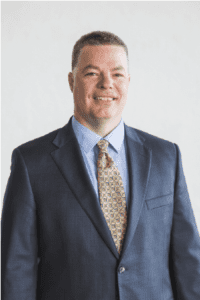What if a Car Crash Witness Refuses to Cooperate or Testify at Trial?
 Statements from a credible witness are the best way to prove the facts of how a crash happened. While many witnesses choose to help, some may be reluctant or may even refuse. Even if a witness gives a statement right after the crash, they may refuse later on if the case goes to trial.
Statements from a credible witness are the best way to prove the facts of how a crash happened. While many witnesses choose to help, some may be reluctant or may even refuse. Even if a witness gives a statement right after the crash, they may refuse later on if the case goes to trial.
What if you need witness testimony to validate your case? Can witnesses be compelled to testify? Can witnesses be compelled to provide a statement for an insurance claim?
TSR Injury Law’s experienced attorneys discuss these issues below. We have taken on many car crash cases, working with many witnesses and also going to trial. We are ready to help you with every aspect of your case, with the goal of recovering maximum compensation.
We do not charge upfront fees. Call today: (612) TSR-TIME.
Why Witnesses May Not Want to Get Involved
A witness does not have much to gain from helping. Although they may gain some personal satisfaction for doing the right thing and helping a victim by telling the truth, sometimes the fear of becoming involved outweighs the “trying to help” scale. The scale may be tipped more to helping if the at fault party broke the law (drinking, texting or running a light) and the witness is more motivated to help.
Witnesses have a lot of things going on and they think they may not have the time. Witnesses may fear retaliation from the bad actor, or they may think their insurance rates are going up if they have the same insurance company. A witness may have a criminal record, and he or she may be concerned it will be used against them by the insurance company.
If your lawyer is filing a liability insurance claim, the witness may know the at-fault driver. The witness may not want to help someone obtain compensation from the at-fault driver’s insurance company. The at-fault driver’s insurance premiums may increase if the claim is successful.
Witnesses may not want to deal with the stress of the legal process. They may need to talk to insurance adjusters and attorneys many times. Witnesses may fear the case going to trial, so they decide not to get involved in the first place. The thought of going to court makes many people anxious, including witnesses, who may have to testify and deal with cross examination.
Getting Witnesses to Help With an Insurance Claim
Some witnesses just need to talk to a lawyer and get their questions answered. After that, some witnesses may be more likely to decide to help you with your claim. For example, your lawyer can explain that by giving a clear statement up front, there is less litigation later. Clear statements promote settlement. This means a trial is unnecessary. An attorney telling this to a witness may be enough to convince him her to take part in your claim.
Your Bloomington vehicle accident lawyer may also need to explain how much of a commitment a witness will need to make. It may be a few phone conversations and a meeting with your attorney. Sometimes all it takes to convince a witness to help is a conversation with an experienced lawyer.
Can Witnesses be Compelled to Testify?
Sometimes attorneys file subpoenas to compel witnesses to testify in court or take part in a deposition. It is important to note a subpoena can only be filed after a lawsuit has been filed.
You should hire an experienced attorney to represent you because he or she will know when a subpoena may be necessary. You want to be able to trust that your case is being managed appropriately.
Filing a subpoena may be necessary if the witness’ testimony is vital to the case. In other words, your attorney may be more likely to file a subpoena If the case will be harder to prove without the witness’ testimony.
Can a Witness Refuse to Comply With a Subpoena?
For the most part, people are required to comply with subpoenas, with rare exceptions. For example, people must have a reasonable amount of time to respond to a subpoena. If a witness does not have enough time to respond, he or she may not be required to comply.
Witnesses may be able to ignore a subpoena if they can prove complying with it creates an undue burden. There is a lot of room for interpretation about an undue burden, which is why each case needs to be assessed on its own.
If a witness can avoid being served the subpoena, he or she cannot be forced to comply with it.
Contact TSR Injury Law to Discuss Your Claim
Think you do not need a lawyer to help you?
Have you considered that the insurance company will be looking for any reason to deny or devalue your claim? Insurance companies are profit-driven. Therefore, they are interested in denying more claims than they pay out.
TSR Injury Law’s attorneys represent injured victims at no upfront cost. We have been advocating for injured victims in Minnesota since 1998, recovering $1 billion in compensation.
Contact us today to learn more: (612) TSR-TIME.


 You may have heard about peer-to-peer carsharing. You may have even made use of a peer-to-peer carsharing service. If you need to use a car for a short period, peer-to-peer carsharing can be a low-cost, convenient way to do it.
You may have heard about peer-to-peer carsharing. You may have even made use of a peer-to-peer carsharing service. If you need to use a car for a short period, peer-to-peer carsharing can be a low-cost, convenient way to do it. Minnesota Lawyer recently profiled
Minnesota Lawyer recently profiled  The most important thing to do after getting injured in a car crash is to seek medical treatment. You need a qualified medical professional to diagnose all your injuries, provide stabilizing treatment, provide pain relief and determine what ongoing treatment is needed.
The most important thing to do after getting injured in a car crash is to seek medical treatment. You need a qualified medical professional to diagnose all your injuries, provide stabilizing treatment, provide pain relief and determine what ongoing treatment is needed. While there may be exceptions, the general rule is that once you settle a case, it cannot be reopened. This is because the settlement includes a section that releases the insurance company from further liability for the victim’s damages. There would be no reason for the insurance company to agree to a settlement without this language in the settlement.
While there may be exceptions, the general rule is that once you settle a case, it cannot be reopened. This is because the settlement includes a section that releases the insurance company from further liability for the victim’s damages. There would be no reason for the insurance company to agree to a settlement without this language in the settlement.